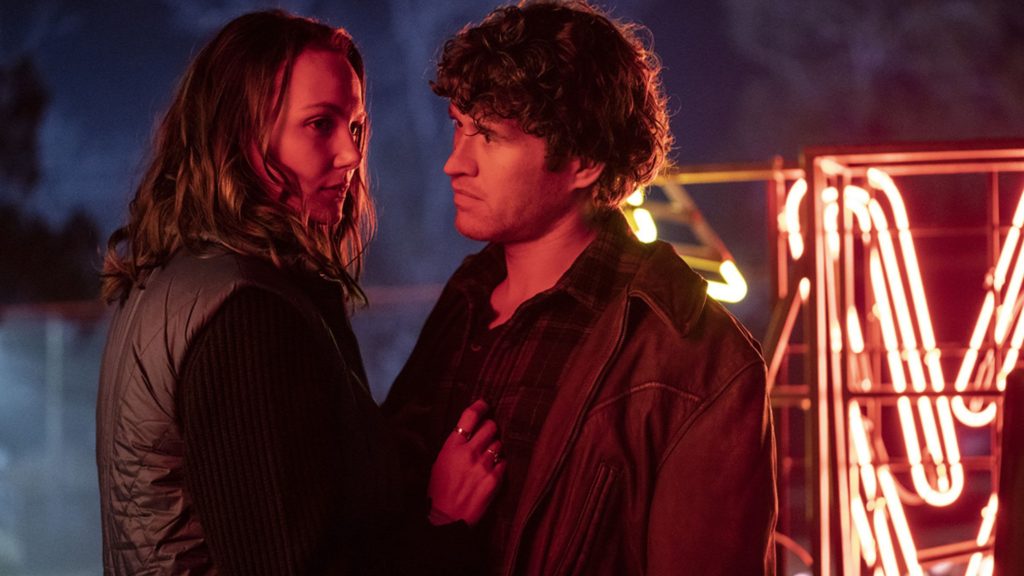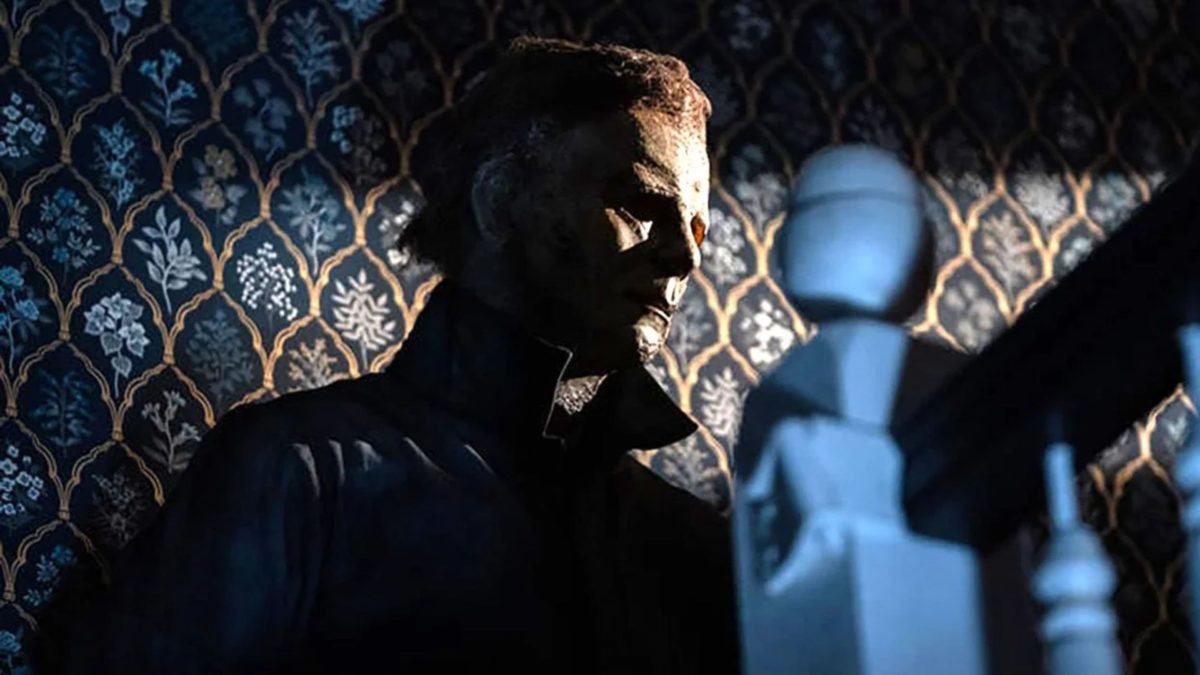David Gordon Green made a huge mistake. He started taking his material seriously. He’s a prestige horror director. He’s not content to simply deliver spooks. He must show us how Michael Myers puts a lens on our diseased morals. The “boogeyman” lives inside of us. Or something like that.
Whatever it is, Green and co. believe that Myers must be more than a stabbing machine. (Hell, he might not even exist. More on this in a sec.) Each of the Green iterations has felt progressively more “elevated horror” to abuse an overused term. It is too occupied with ideas and literary devices to make us properly shit our pants.
The damnedest thing is that I think Green kind of has a point, or at least a kernel of a good idea. Michael Myers is not very interesting as a villain, and, in 1978, that was by design. A villain who is “pure evil,” to quote Dr. Loomis, is not really a sustaining storytelling device. It gets old, and if a movie throws everything but the thrill ride out the window (a la Resurrection), the viewers get restless.

I also think that Gordon and his bevy of writers and producers actually settled on an intriguing premise to spice things up: What does it take for someone to “put on the mask”? How does a person lose their humanity enough to become The Shape? I’ve been wanting to see this in action since the shocking finale of Halloween 4, which gave us another potential killer. Whether Michael is a mentor or conduit or just an inspiration, I think following a new Myers-adjacent killer has promise.
The problem is in the storytelling, which is pretty damn broken. The first hour-or-so of Halloween Ends suggest that Michael Myers is a metaphor or hallucination for our new main character, Corey (Rohan Campbell). I find this to be a fascinating hook – Myers as personal demon and manifestation of insanity rather than actual physical killer.
And yet there’s no follow through. Certain scenes, especially in the last act, state pretty explicitly that Myers is a real person doing stabbing, which kind of breaks down the thematic objective.
There are basically no characters served well by the direction the story has taken. Laurie has been reinvented once again, and her relationship with Haddonfield and her trauma has been severely rewritten. I don’t entirely mind the lack of continuity across the Green Halloweens, but positive-thinking pariah Laurie tries to illuminate some concept of victim-blaming or destructive fame that never crystallizes.
Allyson, meanwhile, remains a total cipher of a character with no real character traits; I was neither surprised nor interested in any of her choices in the way the movie wants us to be. When she spurns Laurie, the movie wants it to feel like a gut punch heel turn, but both Laurie and Allyson are so poorly calibrated that it doesn’t feel like anything.

And then there’s Corey. Rohan Campbell out of nowhere playing the biggest role in the supposed last Halloween movie. (Fun fact: it is at least the fourth time a Halloween movie has qualified as the “last” in the series.) I like the idea of Corey much more than the execution, and a lot of that is because the previously mentioned storytelling problems on just how metaphorical this evil is supposed to be. For example: If Myers is a mental manifestation of evil, why do Corey’s interactions with him have homoerotic vibes? When we see the “Shape” that’s in Corey’s eyes, is it a literal curse, or metaphorical societal sin bringing the man down, a la Joker? These questions have no answers, and their ambiguity is not especially compelling, just confusing and discordant.
Even if the film had nailed everything in the thematic and storytelling component, the nuts-and-bolts horror stuff is thoroughly mediocre. The movie takes a step towards grittier violence, but the sense of dread isn’t there. None of the kills other than the accidental one from the prologue really stuck with me. Even Myers’ death feels kind of dull despite the gruesomeness. Myers supposedly dies every other film in the series, so it has no special impact. (And nothing can top the decapitation in H20.)

There’s some fun stuff on the fringes. I find it hilarious that the marching band geeks are the bullies. And there’s some intriguing subversion in making nu-Michael and nu-Laurie (Allyson and Corey) lovers. I felt a sense of relief the film paid off on the Chekhov’s metal grinder, though to far less violent ends than expected.
But the fringes aren’t enough. We’re thirteen movies in. Swing for the damn fences. Make it weirder and gnarlier and more apocalyptic. Maybe even coherent, if you’re feeling ambitious. Oh well.
- Review Series: 2022: Year in Film
- Review Series: Halloween
Is It Good?
Not Good (2/8)
Dan is the founder and head critic of The Goods. Follow Dan on Letterboxd. Join the Discord for updates and discussion.

